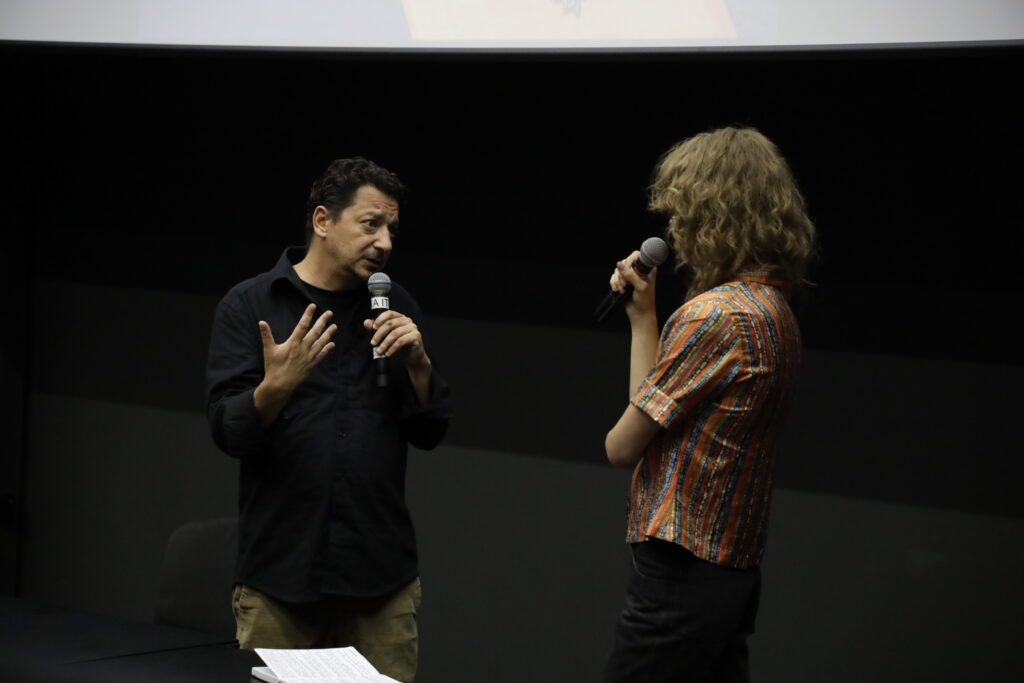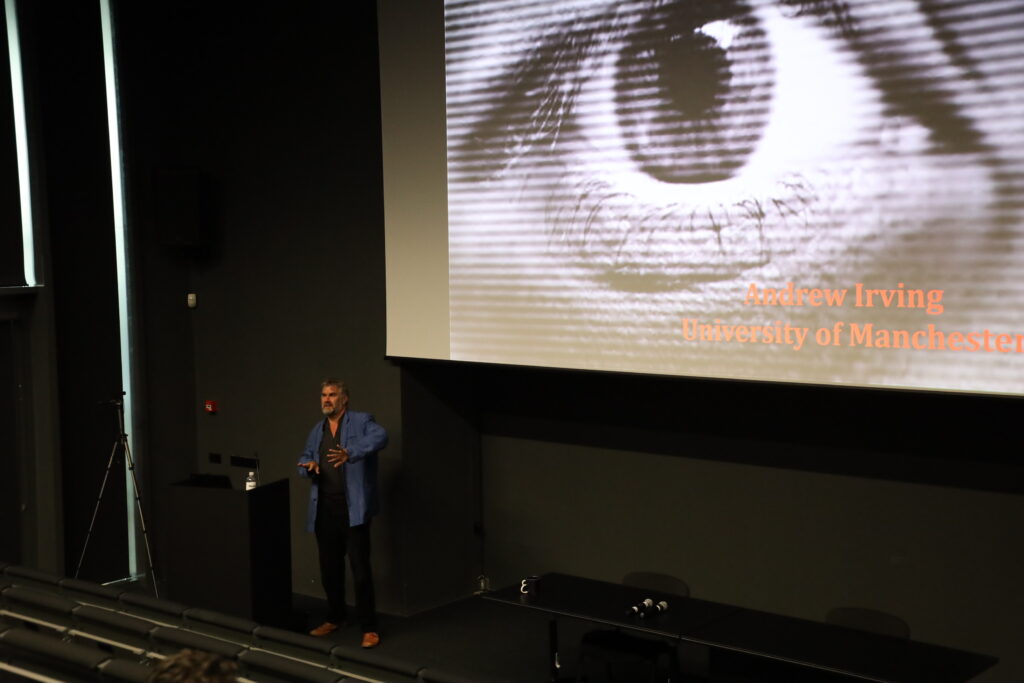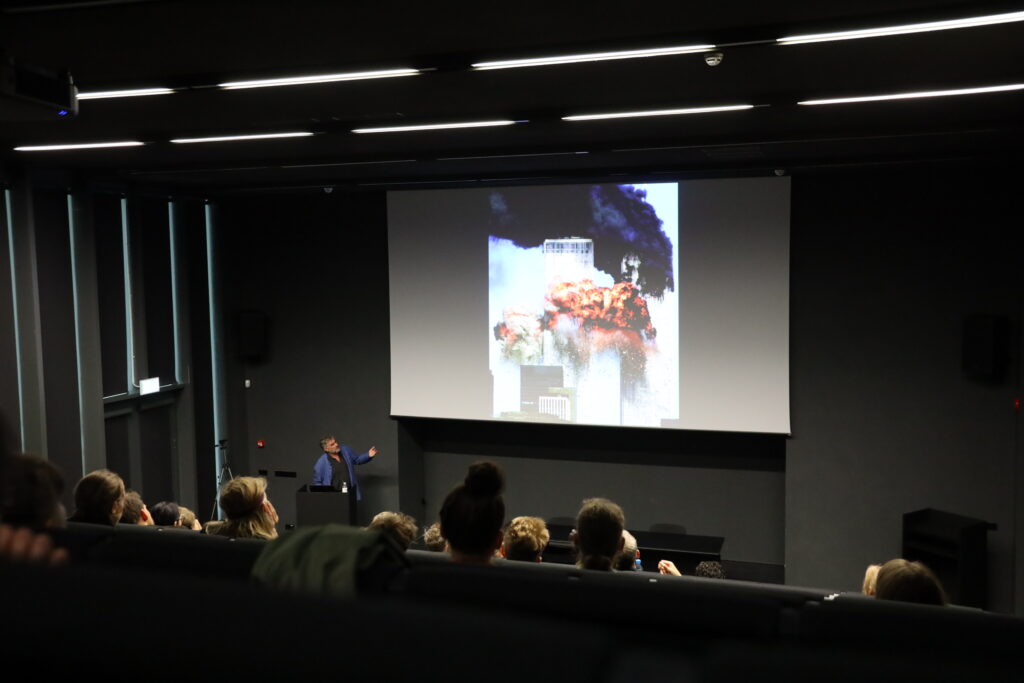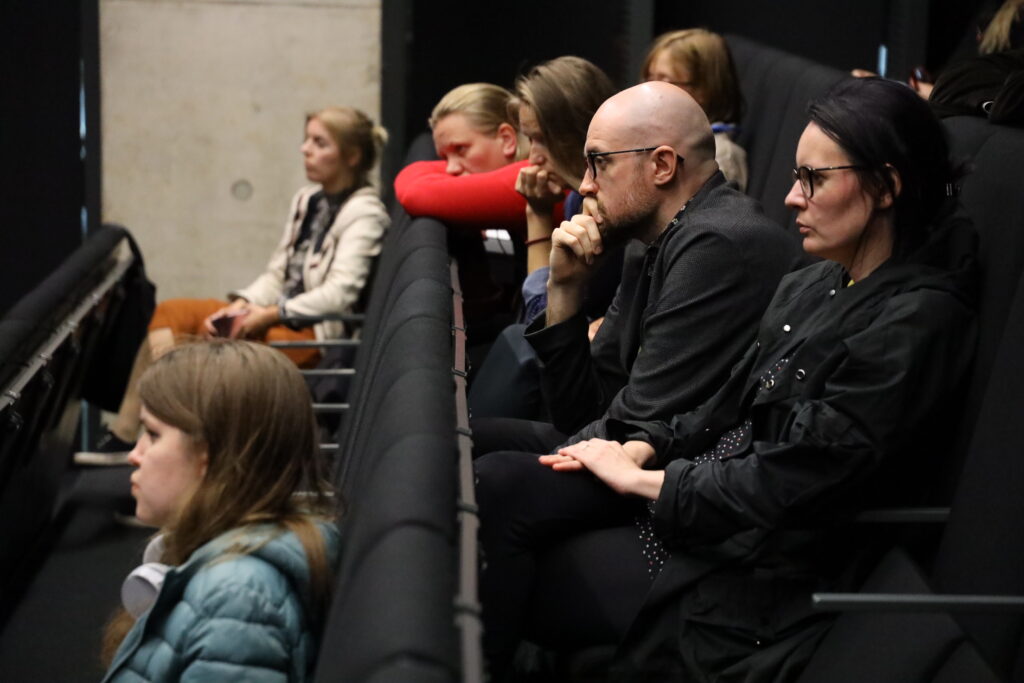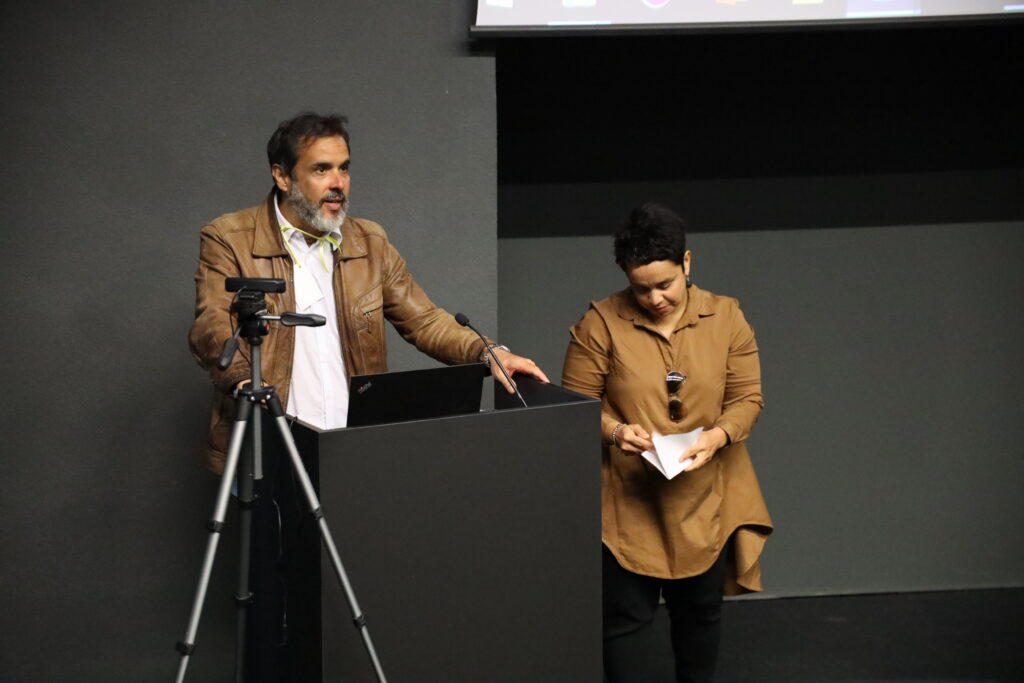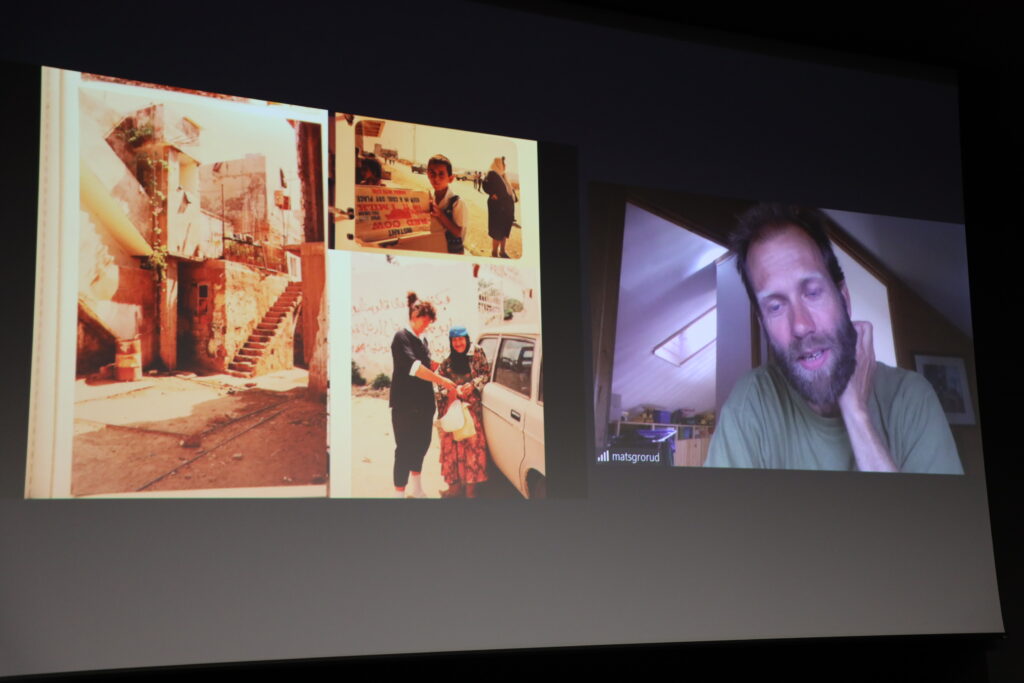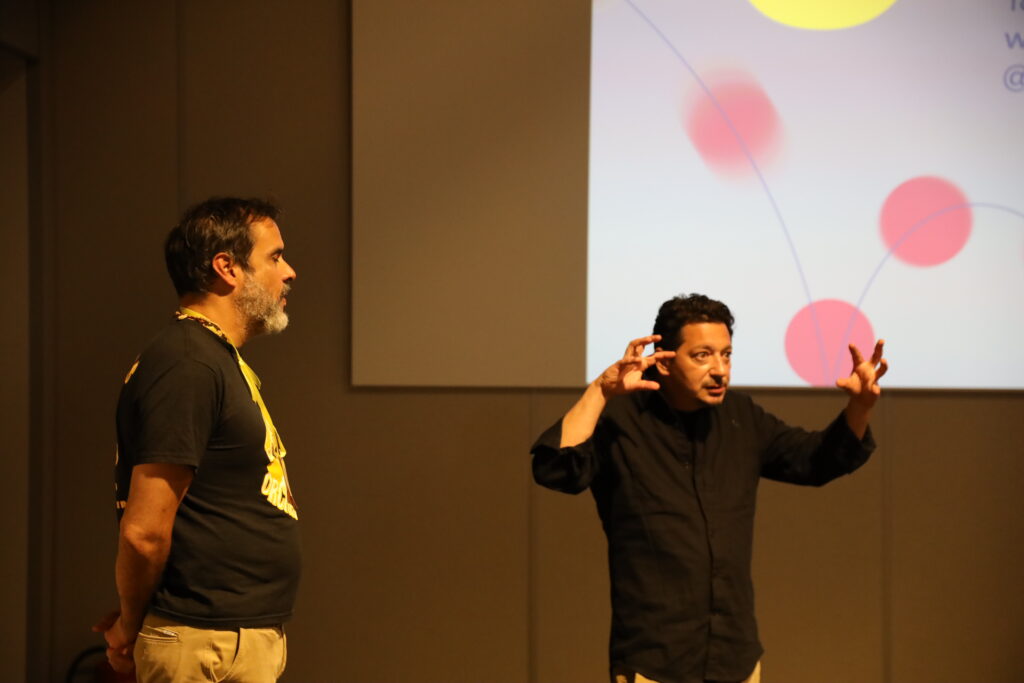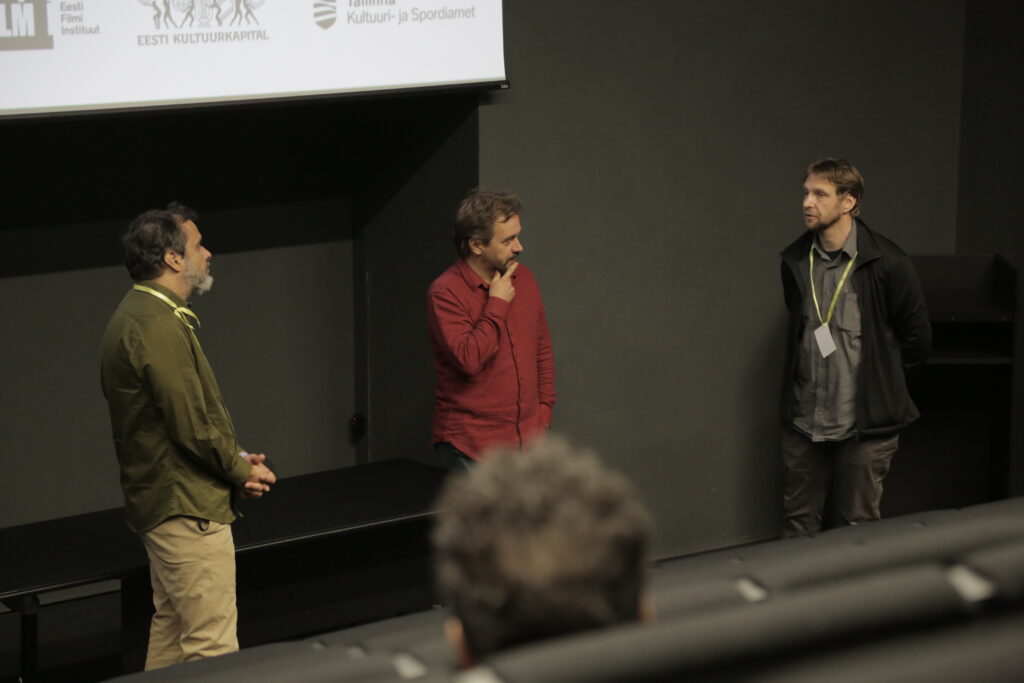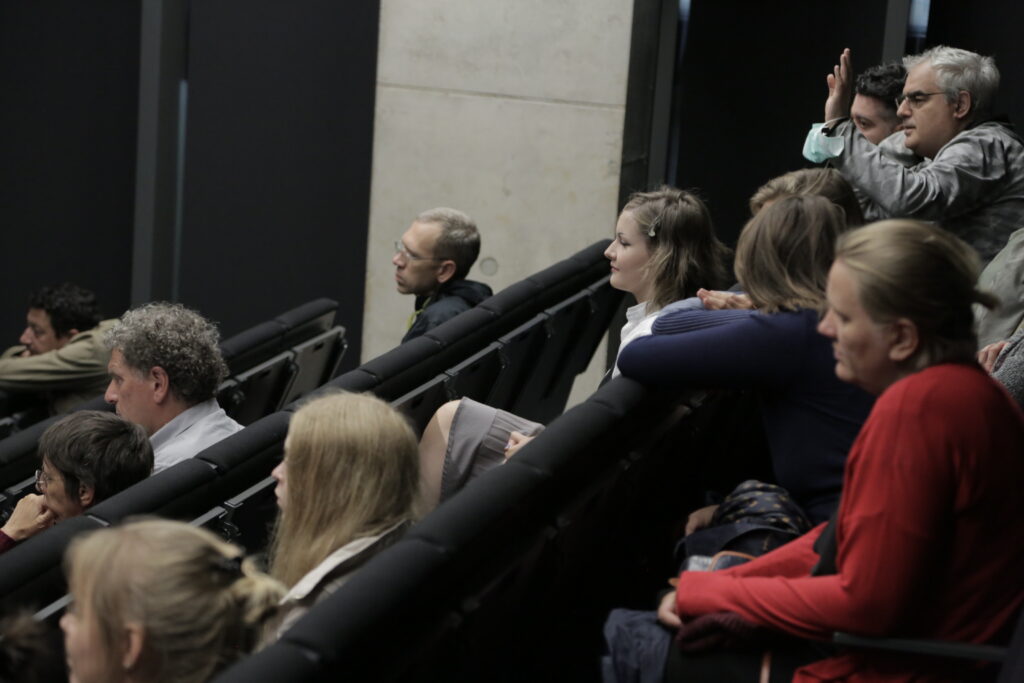Animation Meets Anthropology: In Praise of Documentary Art
Carlo Cubero
Tallinn Anthropology
The curatorial line of the film festival “Animist Tallinn” will focus on the connections between animation cinema and other fields of research. The idea is to create a space where animators can get feedback from outside of their usual network. The goal is to promote a trans-disciplinary network that values animation as an art form and its contributions to discussions on the creative process, the politics of art, technology, and questions of representation.
Carlo A. Cubero, PhD
Department of Social & Cultural Anthropology
Programme curator
I hold a PhD in Social Anthropology using Visual Media from the University of Manchester, where I specialised in the contemporary Caribbean and Visual Anthropology. I am currently Associate Professor of Anthropology at Tallinn University where I lecture and coordinate the graduate programme in Social Anthropology and the Audiovisual Ethnography track in Social Anthropology.
Andrew Irving
Main guest
Andrew Irving is Professor of Anthropology at the University of Manchester. His research areas include sensory perception, time, death, urban anthropology and experimental methods. Recent books include The Art of Life and Death: Radical Aesthetics and Ethnographic Practice (2017); Anthropology and Futures: Researching Emerging and Uncertain Worlds (2017); Beyond Text? Critical Practices and Sensory Anthropology, (2016). Recent film and multi-media works include The Man Who Almost Killed Himself (BBC), Wandering Scholars: Or How to Get in Touch with Strangers (Österreichisches Museum für Volkskunde).
Film programme “Animated Anthropology”
4 animated short films that deal with anthropological topics including myth, body, sickness, life and death. Films will be commented on by their authors and anthropologists Andrew Irving and Carlo Cubero.
Juan Medina “Tio” 2021
Yiorgos Tsangaris “Rites of Spring” 2021
Yiyang Sun “Tatata” 2020
Robin McKenna “Thanadoula” 2020
“The Tower”
Director: Mats Grorud
Year: 2018
Length: 80 min
Country: France, Norway, Sweden
Beirut, Lebanon, Today. Wardi, an eleven-year-old Palestinian girl, lives with her whole family in the refugee camp where she was born. Her beloved great-grandfather Sidi was one of the first people to settle in the camp after being chased from his home back in 1948. The day Sidi gives her the key to his old house back in Galilee, she fears he may have lost hope of someday going home. As she searches for Sidi’s lost hope around the camp, she will collect her family’s testimonies, from one generation to the next.
Lecture: The creative process of the film “The Tower”
The author of the film “The Tower” Mats Grorud gives an overview of the creative process of his film. Mats lived for a year in a Middle Eastern refugee camp and developed a full-length puppet film based on the stories of its residents.
Mats Grorud is a film director and animator from Norway. He previously directed two short films and has worked as an animator on several feature films, documentaries and music videos. During his childhood, his mother worked as a nurse in refugee camps in Lebanon. In the 1990s, Mats studied at the American University of Beirut, Lebanon while working as an English and Animation teacher in the Burj el Barjaneh refugee camp. Based on the testimonies of the refugees and his experience, he wrote the script for his first-feature film, The Tower.
“Walking on Water”
Director: Andrey Paounov
Year: 2018
Length: 100 min
Country: United States, Italy
TEN YEARS AFTER the passing of his wife and partner, Jeanne-Claude, Christo sets out to realize, The Floating Piers, a project they conceived together many years before. Documented with uncensored access to Christo and his team, Walking on Water is a cinema verite look into Christo’s process, from inception to completion of his latest large-scale art installation. The film takes the viewer on an intimate journey into Christo’s world, unmediated by interviews, voice overs or reenactments drawing the portrait of a man who deliberately places visceral experience over demagogy.
And yet, this intimate portrait of a man chasing a dream happens on the backdrop of the epic madness of it all — the complex dealings that merge between art and state politics, engineering challenges and logistical nightmares, and the sheer force of nature, captured through breathtaking aerial views and fly on the wall cameras. So, as we watch the dream unfold, we get to know the man chasing it — Christo.
Lecture: “See The Wind” or observation, documentation and representation of the creative process
Andrey Paounov, the author of “Walking on Water”- a feature-length documentary about the world-famous artist Christo (1935-2020) – will reveal the creative process behind Christo’s latest work “Floating Piers”.
Andrey M Paounov is a Bulgarian writer-director best known for his documentary feature films. His debut Georgi and the Butterflies won the Award for Best Mid-Length Documentary (formerly: Silver Wolf Award) at the International Documentary Film Festival Amsterdam. His first feature The Mosquito Problem and Other Stories was included in the 46th International Critics’ Week of the Cannes Film Festival 2007. The Boy Who Was a King (2011), Andrey’s second full-length documentary, premiered at Toronto International Film Festival. It won the Best Documentary Feature Jury Award at the 2012 RiverRun International Film Festival. His latest film Walking on Water following renowned artist Christo premiered at Locarno Festival 2018.
“Journey to the Maggot Feeder”
Director: Liivo Niglas, Priit Tender
Year: 2015
Length: 67 min
Country: Estonia
The anthropological road-movie follows an animation director Priit Tender, who is making a film based on the Chukchi fairy tale “The Maggot Feeder”. Priit is intrigued by the surreal content of the fairy tale. Directors duo Priit Tender and anthropologist Liivo Niglas take the viewer on several journeys to the very end of the world, to a crisp and picturesque country, sometimes with completely surreal insights, to find traces of the Maggot Feeder. They try to understand the world that has created such strange narratives and to find it within themselves, by meeting something or someone very different.
Andrew Irving keynote: All the World’s a Stage: Adventures in Image and Sound
“Anthropology is philosophy only with the people in” insofar as it addresses fundamental questions about human existence—such as those relating to knowledge, language, religion, art, ethics, life, and death—but does so by grounding these in the lived experiences and imaginative lifeworlds of people living in different societies and cultures across the world. In response, this presentation explores the origins of the human imagination and the use of images, sounds and drawing in shaping and understanding the complexity and diversity of human life. What makes human beings want to draw, write and make images on the surfaces that surround them? Where did this capacity come from? What is behind this need to bring images into the world and make them visible to oneself and others? Such questions speak to the very foundations of what it means to be human.
Workshop: Everyday Adventures in Anthropology by Andrew Irving
The workshop was focused on developing participant observation techniques in the service of producing meaningful stories. The exercises were informed by techniques developed in Psychogeography, Situationism, Sound Studies, and Social Anthropology. This workshop was a collaboration between Tallinn Anthropology and EKA Animation. Professor Andrew Irving presented the results of his workshop made in collaboration with anthropologists and animators.
